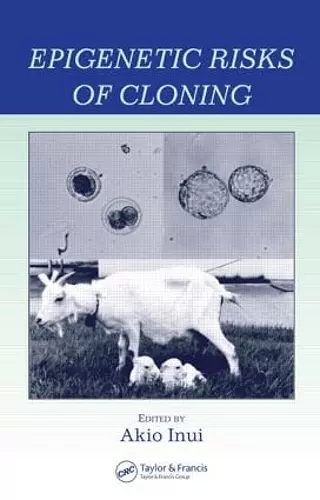Epigenetic Risks of Cloning
Format:Hardback
Publisher:Taylor & Francis Inc
Published:25th Jul '05
Currently unavailable, and unfortunately no date known when it will be back

Cloning has the potential to be an extremely valuable tool across many fields. In agriculture, the reproductive cloning of farm animals could prove to be advantageous. In clinical medicine, the employment of therapeutic cloning for cell, tissue, and organ replacement appears to be imminent. In Epigenetic Risks of Cloning, 32 leading researchers detail the cloning methods being employed with various animal models, providing both a review of current findings and a discussion of potential concerns. Less than four percent of reconstructed embryos typically develop to adulthood, the cumulative result of inefficiencies occurring at every stage of development. This book considers the very real consequences of those inefficiencies: high rates of fetal, perinatal, and neonatal loss, as well as the production of abnormal offspring. At present, there is a legitimate concern that the propensity for epigenetic errors could be paralleled in human embryos.
“… takes a look at several of the success stories of somatic cell transplantation and assesses realistically how successful these attempts have been in the contest of the epigenetic effects on the viability and health of cloned animals. The volume is a collection of ten chapters, nine of which discuss aspects of animal cloning from the perspective of different animal systems. … the chapters in this volume are scholarly and carefully written. … includes a description of the technology involved in cloning or ART and then a discussion of the epigenetic risks involved in such technology. …”
— Rob DeSalle, Institute for Comparative Genomics, American Museum of Natural history, New York, in The Quartely Review of Biology, 2006
ISBN: 9780849325274
Dimensions: unknown
Weight: 430g
200 pages